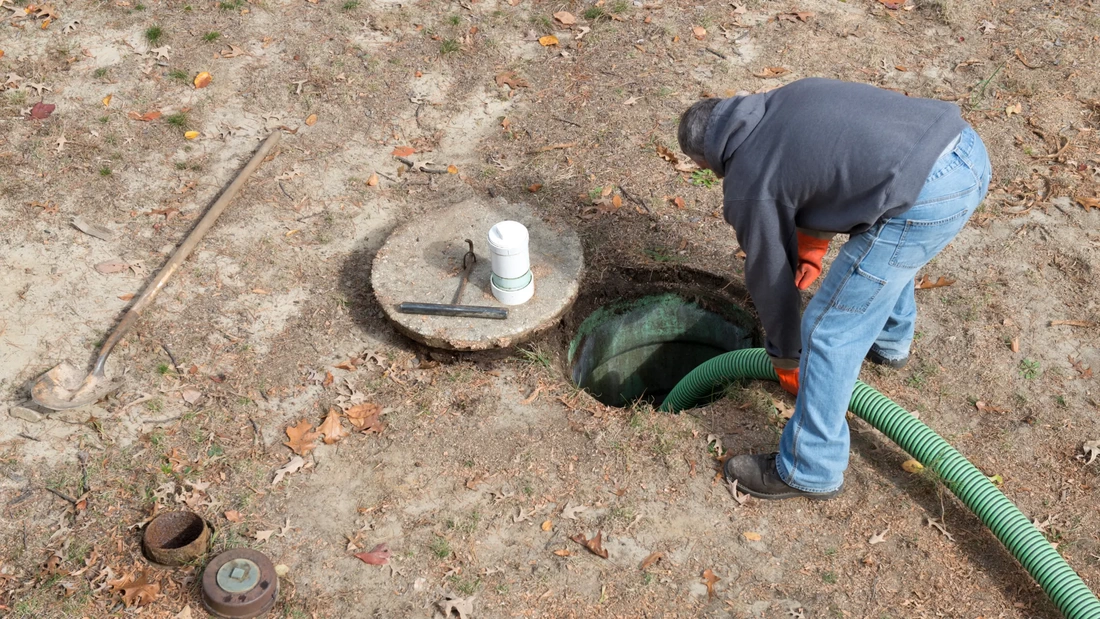Knowing your septic tank’s location may help you schedule regular sewage line cleanouts and repairs. Continue reading to learn how to discover your septic tank.
Follow the Main Sewer LineBuy a soil probe to help you locate the underground sewage line and septic tank. Go to your basement or crawl area and search for the main sewage line that connects to your septic tank. Check for a four-inch-diameter pipe leading away from your residence. Recall the position of the sewage line and where it exits your house so you can locate it outdoors. The sewer lines will go to your septic tank. You may also use a drain snake to trace the approximate path of your pipes.
Put the tiny metal probe into the dirt every two feet to locate and trace the sewage lines. Most states require septic tanks to be at least five feet away from the house, with many tanks being 10 to 25 feet away, so you may have to probe a bit farther out before striking the tank.
Inspect Your PropertyImperfections in the terrain may indicate the location of your septic tank. Septic tanks are frequently placed so that they are scarcely seen. Dips in the soil or little hills, on the other hand, may suggest a hidden septic tank.
Use your soil probe to find the septic tank if the dips or hills are five to 25 feet distant from your property. Since most septic tanks are between six inches and four feet down, probe the soil far enough. You want to strike something hard, like flat concrete or fiberglass.
Keep your eyes peeled for the septic lid. as you survey your property. You should be able to locate the septic tank lid using your metal soil probe. They are usually at or near ground level.
Your septic tank is unlikely to be located under any of the following:
- surfaces that have been paved
- Unique Landscaping
- If you have a water well, use it.
If you still need help discovering your septic system, ask your neighbors where their septic tank is on their land. Understanding how far their septic systems are will help you determine where yours is in your yard.
Check the Property Records
Not sure how to get this? Just contact your county health department! Check with your local health agency whether they have a septic tank map and a property survey map.
You may be shocked to learn that several methods exist to get information on your property without leaving your home’s comfort. County records, for example, often contain construction permits, which may include schematics with specifications on how far away from a septic tank one should be and other helpful information such as size, etc.
Sadly, this information may or may not be included in the property records of older properties. Yet, most counties save septic tank installation records for all addresses.
You may also review your home inspection documentation or the house title to determine the Your septic tank’s location.
Don’t Try to Fix Septic Tank Issues YourselfLeave septic tank problems to the pros. After you’ve located the septic tank, call Elizabeth Plumbing and Drain service so we can do regular maintenance or check for any problems.
Do not open the septic tank lid since poisonous vapors might cause significant health problems. Falling into an open septic tank might result in serious injury or death. Although knowing how to locate your septic tank is beneficial, it’s also important to be aware of the health concerns associated with opening the tank.
Schedule Septic Tank MaintenanceProper septic tank maintenance helps to avoid sewage backups and expensive sewer system repairs. It would help if you had Depending on the size of your tank and the number of people, you should have your septic tank pumped out every three to five years. that reside in your house.
Elizabeth Plumbing and Drain Service offer skilled septic tank and drain field maintenance and repairs. It is not required to know the location of the septic tank. Even if you have a vast property, our skilled plumbers have all the tools and equipment to locate your tank.
We offer excellent service to Metro Atlanta and the neighboring regions. We’re open seven days a week, 24 hours a day. We also provide emergency sewer services as necessary.
Frequently Asked Questions
What is a septic system, exactly?
A septic system is a wastewater treatment system. in which wastewater is sent via pipes from your home to a septic tank located outside your home. The septic tank is often built underground. Solids and liquids will separate in the septic tank. Solids will sink to the bottom, and drinks will ultimately flow into your leach field.
How can I determine whether I have a septic tank?If there are no obvious signs of a septic tank, such as uneven landscaping in your yard, there are a few methods to find out.
Reviewing your property records is the best way to ensure which system you use. The house should have come with a septic system map when you bought it.
Another method to know is to look at your power statement. Since your septic system is part of your wastewater management, you should not get a water bill from the public utility services. You may not get one if you also use healthy water. If you don’t have a meter, use healthy water rather than the public sewage system.
What do I do once I locate my septic tank?After you’ve found your septic tank, there are a few things you should do. It’s critical to mark the position of your septic tank. If you ever require a sewage line cleanout or septic tank maintenance, you may save time by combining inspection, pumping, and repair services.
Note your tank’s precise location so you can locate it again. It should be heavy enough not to blow away in bad weather. Utilizing garden décor or a potted plant might be an excellent method to achieve this without having an unattractive flag or marking in your yard!
You should make one if you still need a septic tank map when you acquire the house. This way, you’ll have it for future reference and can discover the identical position again. You may pass your home on to the new owner if you ever sell it.
Then, contact Elizabeth Plumbing and Drain Service for septic system maintenance. Correctly managing your septic system may help avoid more significant problems and the need for future repair work. Our crew is ready to help you with the hard lifting!


